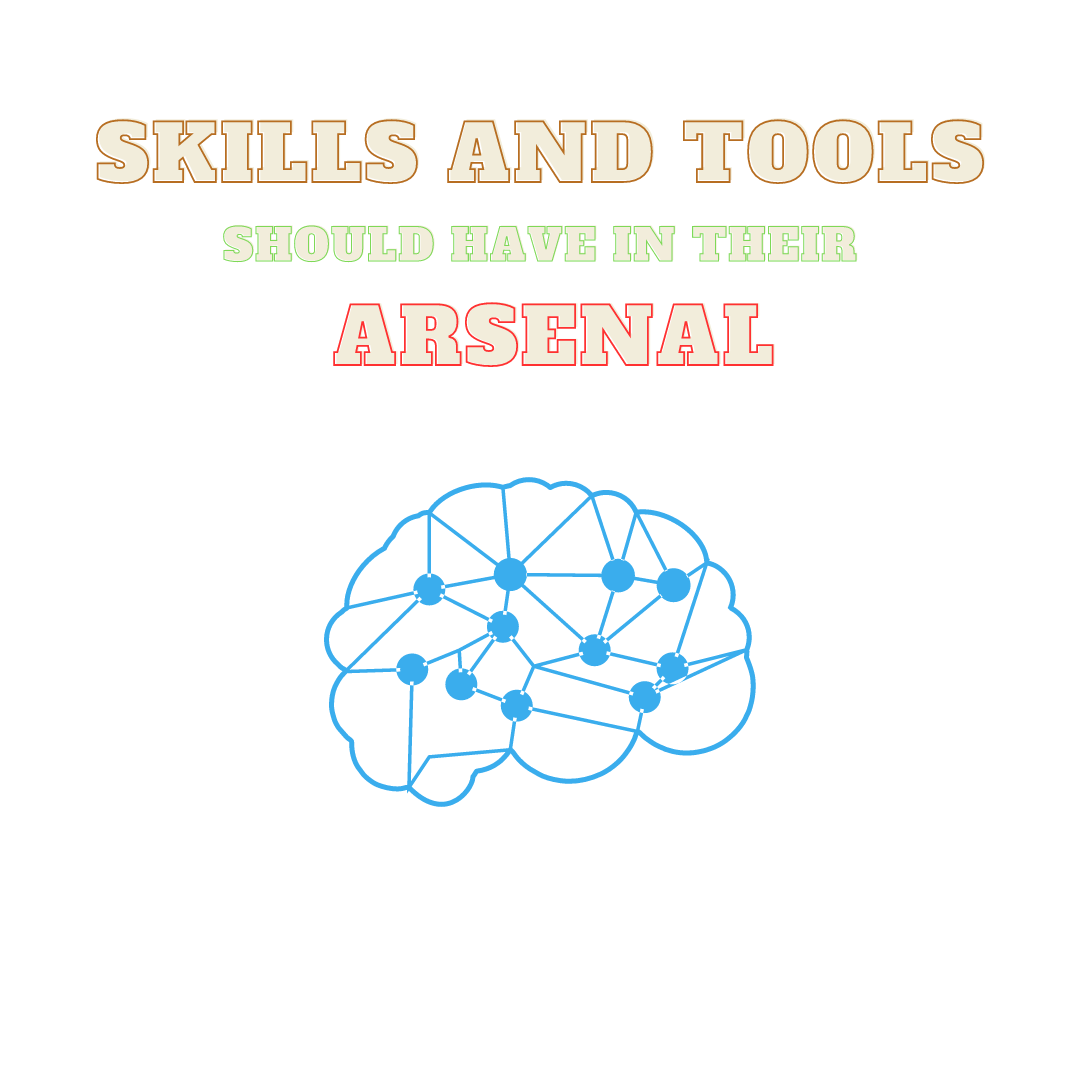
Introduction:
As the demand for web development continues to rise, web developers must equip themselves with the necessary skills and tools to stay competitive in the industry. Whether you're a beginner or an experienced developer, having a well-rounded arsenal of skills and tools is essential for efficient and effective web development. In this comprehensive blog post, we will explore the key skills and tools that every web developer should have in their toolkit.
1. HTML, CSS, and JavaScript:
These three core languages are the foundation of web development. HTML (Hypertext Markup Language) is used for creating the structure and content of web pages, CSS (Cascading Style Sheets) is responsible for styling and layout, and JavaScript adds interactivity and functionality. Having a strong grasp of these languages is fundamental for any web developer.
2. Responsive Design:
With the growing prevalence of mobile devices, responsive design has become crucial. Web developers should be proficient in creating websites that adapt and function seamlessly across different screen sizes and devices. Understanding media queries and responsive design principles is essential to deliver a consistent user experience.
3. Front-End Frameworks:
Front-end frameworks such as Bootstrap, Foundation, and Materialize CSS provide pre-built components, grids, and styling to expedite front-end development. These frameworks enable developers to create responsive and visually appealing websites with less effort. Familiarity with at least one front-end framework is highly recommended.
4. Version Control Systems:
Version control systems like Git are essential tools for collaborative web development. They enable developers to track changes, work on different branches, and easily collaborate with other team members. Being proficient in Git and understanding its commands is crucial for effective code management and collaboration.
5. JavaScript Libraries and Frameworks:
JavaScript libraries and frameworks, such as jQuery, React, Angular, and Vue.js, can significantly enhance productivity and development speed. These tools provide pre-built components, simplify complex tasks, and offer efficient ways to handle data and interactivity. Familiarity with at least one popular JavaScript library or framework is beneficial.
6. Back-End Development:
A solid understanding of back-end development is crucial for building dynamic and functional web applications. Popular back-end languages include PHP, Python, Ruby, and JavaScript (Node.js). Familiarity with back-end frameworks like Laravel, Django, Ruby on Rails, or Express.js can accelerate the development process and simplify server-side tasks.
7. Database Management:
Web developers often work with databases to store and retrieve data. Familiarity with database management systems (DBMS) like MySQL, PostgreSQL, or MongoDB is essential. Understanding how to design database schemas, write queries, and optimize database performance is crucial for developing robust and scalable web applications.
8. Testing and Debugging:
Web developers should be skilled in testing and debugging their code to ensure quality and identify and fix issues efficiently. Familiarity with testing frameworks like Jest, Mocha, or PHPUnit, as well as debugging tools like Chrome DevTools or Firebug, can greatly aid in the development and debugging process.
9. Knowledge of APIs and Web Services:
Web developers often need to integrate external services and APIs into their applications. Understanding how to make API requests, handle responses, and integrate third-party services is crucial. Familiarity with RESTful APIs and authentication methods like OAuth will enable seamless integration and expand the functionality of web applications.
10. Continuous Learning and Adaptability:
Web development is a constantly evolving field. The ability to learn and adapt to new technologies, frameworks, and best practices is essential. Staying updated with the latest trends, attending workshops, joining online communities, and engaging in continuous learning are key aspects of being a successful web developer.
Conclusion:
In conclusion, this comprehensive blog post has highlighted the skills and tools that every web developer should have in their toolkit. The demand for web development continues to rise, making it essential for developers to equip themselves with the necessary skills to stay competitive.
The foundation of web development lies in HTML, CSS, and JavaScript, which are fundamental languages for creating structure, styling, and interactivity of web pages. Additionally, responsive design is crucial in today's mobile-centric world, requiring developers to create websites that adapt seamlessly across different devices.
Front-end frameworks like Bootstrap, Foundation, and Materialize CSS expedite front-end development by providing pre-built components and styling options. Version control systems like Git enable collaborative development and effective code management.
JavaScript libraries and frameworks, such as jQuery, React, Angular, and Vue.js, enhance productivity and development speed by simplifying complex tasks and offering efficient ways to handle data and interactivity. Back-end development, including proficiency in back-end languages like PHP, Python, Ruby, or JavaScript (Node.js) and familiarity with frameworks like Laravel, Django, Ruby on Rails, or Express.js, is essential for building dynamic web applications.
Database management skills, including knowledge of database management systems like MySQL, PostgreSQL, or MongoDB, are important for storing and retrieving data. Testing and debugging skills, using frameworks like Jest, Mocha, or PHP Unit, and debugging tools like Chrome DevTools or Firebug, ensure code quality and efficient issue identification and resolution.
Understanding APIs and web services allows web developers to integrate external services and expand the functionality of their applications. Continuous learning, adaptability, and staying updated with the latest trends are essential aspects of being a successful web developer in this constantly evolving field.
By acquiring and mastering these skills and tools, web developers can build efficient, functional, and visually appealing websites, ensuring their competitiveness and success in the ever-growing web development industry.



0 Comments
Thanks